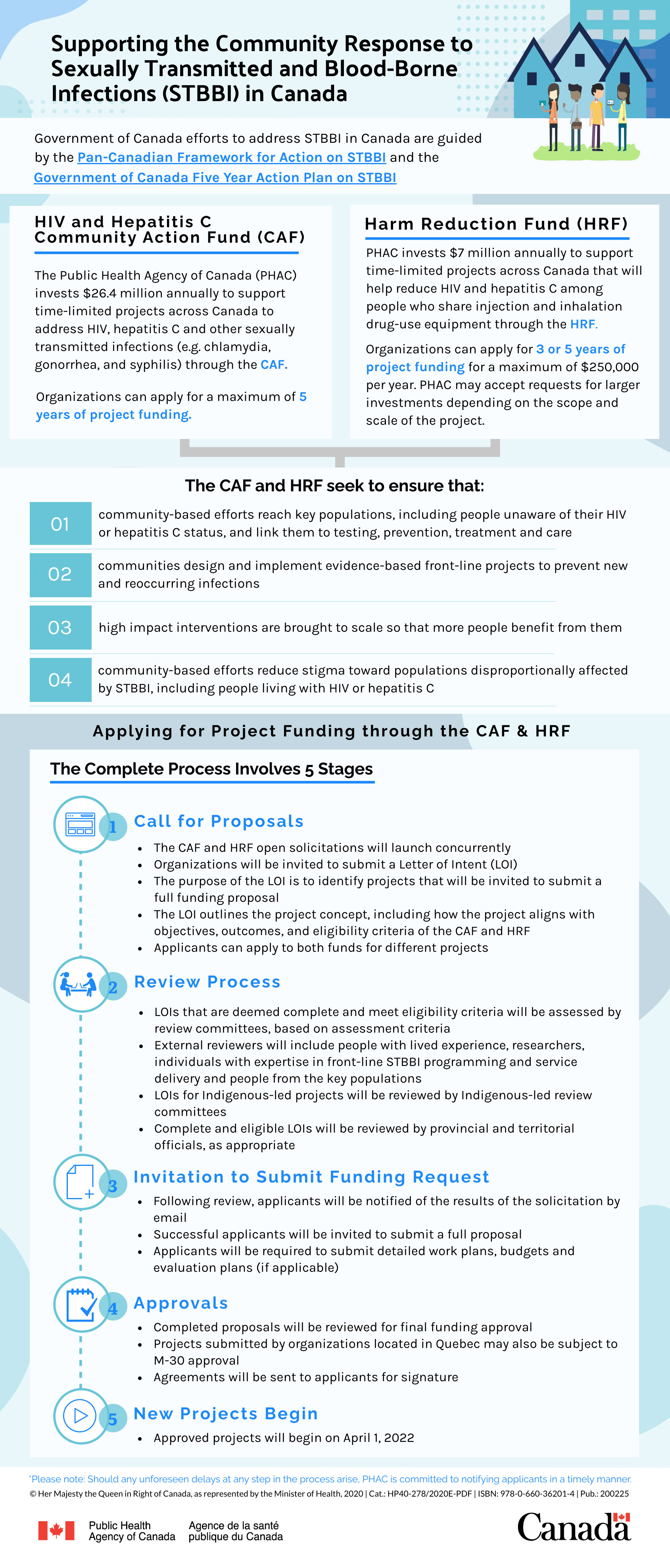Funding opportunities to address sexually transmitted and blood-borne infections (STBBI)
Current status on funding opportunity: CLOSED
The HIV and Hepatitis C Community Action Fund (CAF) and Harm Reduction Fund (HRF) solicitations are now closed. PHAC is no longer accepting Letter of Intent (LOI) submissions. The following is for information purposes only.
The deadline to submit a LOI was January 29, 2021 at 3pm EST. Applicants were notified of the LOI results via email on July 12, 2021. Applicants whose LOI was successful during the first stage, were invited to submit a full proposal. Approved projects will begin April 1, 2022.
Supporting the Community Response to Sexually Transmitted and Blood-Borne Infections (STBBI) in Canada
Supporting the community response to sexually transmitted and blood-borne infections (STBBI) in Canada
Government of Canada efforts to address STBBI in Canada are guided by the Pan-Canadian Framework for Action on STBBI and the Government of Canada Five Year Action Plan on STBBI.
HIV and Hepatitis C Community Action Fund (CAF):
The Public Health Agency of Canada (PHAC) invests $26.4 million annually to support time-limited projects across Canada to address HIV, hepatitis C and other sexually transmitted infections (e.g. chlamydia, gonorrhea, syphilis) through the CAF.
Organizations can apply for a maximum of 5 years of project funding.
Harm Reduction Fund:
PHAC invests $7 million annually to support time-limited projects across Canada that will help reduce HIV and hepatitis C among people who share injection and inhalation drug-use equipment through the HRF.
Organizations can apply for 3 or 5 years of project funding for a maximum of $250,000 per year. PHAC may accept requests for larger investments depending on the scope and scale of the project.
The CAF and HRF seek to ensure that:
- community-based efforts reach key populations, including people unaware of their HIV or hepatitis C status, and link them to testing, prevention, treatment and care
- communities design and implement evidence-based front-line projects to prevent new and reoccurring infections
- high impact interventions are brought to scale so that more people benefit from them
- community-based efforts reduce stigma toward populations disproportionally affected by STBBI, including people living with HIV or hepatitis C
Page details
- Date modified:
